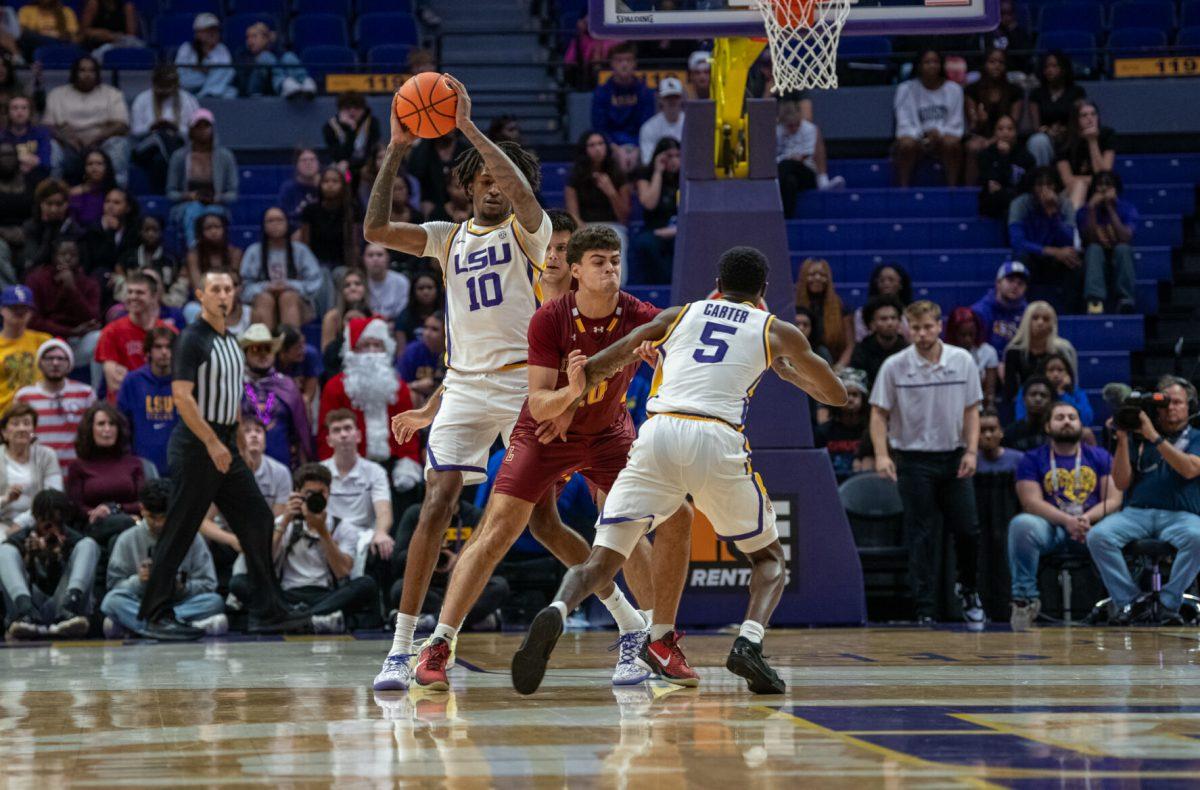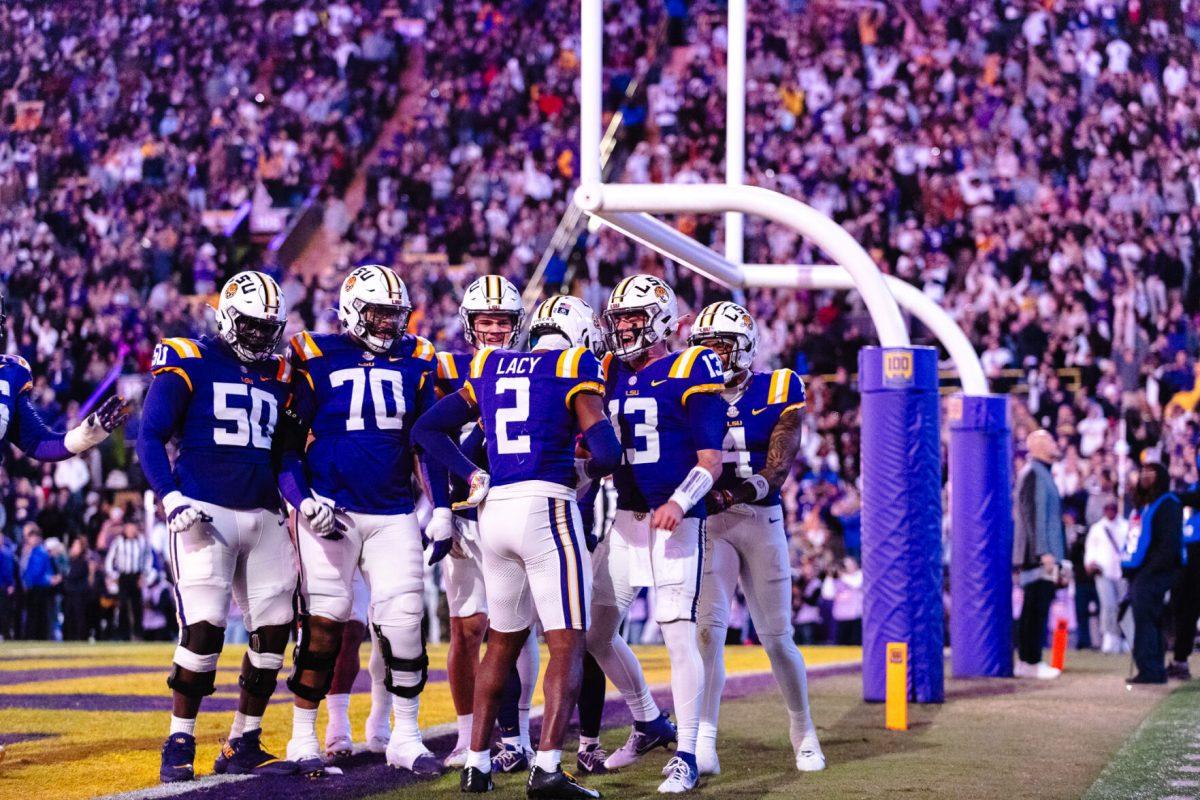The 2010 LSU football season is only two games young, but big preparations are already under way for the 2011 season.
Athletic Director Joe Alleva announced last week that the LSU football team will open the 2011 season against Pac-10 powerhouse Oregon as part of the Cowboys Classic at Cowboys Stadium in Arlington, Texas.
The game will mark the fourth time the two teams have met and the first since 1977. LSU holds a 2-1 all-time series lead.
Verge Ausberry, senior associate athletic director, is in charge of football operations as well as football scheduling. He said the game will give the University and its athletic program invaluable publicity.
“What’s best for the program? National attention,” Ausberry said. “We make decisions, as long as we’re here, for what’s best for LSU and for what’s best for this program.”
Ausberry said the decision was the culmination of a two-year process that began in 2008 with a meeting in Dallas with Dallas Cowboys owner Jerry Jones. Alleva, Ausberry and LSU coach Les Miles then finalized their plans on campus.
“Joe Alleva, Les Miles and I sat down, and we talked about different things, finding the right game and making sure it’s beneficial to our program,” Ausberry said.
Financial and locational motivations played a significant role in the decision-making process, but Ausberry said the greatest motivation was the desire to keep LSU football at the forefront of the college football landscape.
“No matter how big your brand is, it can never be too big,” Ausberry said.
Neutral site season openers have become common for many high-profile programs during recent years. The Oregon game will be LSU’s second-consecutive neutral site opener after the Tigers opened this season at the Georgia Dome in Atlanta against the North Carolina Tar Heels. Southeastern Conference rival Alabama opened its season at the Georgia Dome in 2008 and 2009 against Clemson and Virginia Tech, respectively.
Ausberry said playing highly publicized games in major cities provides countless benefits for both the University and its athletic program.
“Houston, Atlanta and Dallas — those are the cities that make sense to us,” Ausberry said. “We want to get in more, recruit students to our campus and also expand our brand, playing in some of the best stadiums in the world.”
Ausberry postponed a home game against Southern Mississippi to 2016 and replaced it with a home game against Western Kentucky to accommodate the Oregon game.
The Oregon game will leave the Tigers with six home games in 2011 instead of the usual seven.
Ausberry insisted on his sensitivity toward the fan base but said a high-profile game in Dallas makes “financial sense.” The game will provide a “substantial” increase in revenue compared to a non-conference home game because the program only incurs team travel expenses.
“If you want to be a program that’s one of the best in the nation, then you have to do these type of things,” Ausberry said. “We don’t like losing a home game either, but this is what’s best for our program.”
Tough non-conference opponents are popping up farther down the road for LSU, as well. Washington comes to Baton Rouge in 2012 after LSU traveled to Seattle to play the Huskies in their 2009 season opener.
Arizona State will also make the journey to Tiger Stadium in 2015, and the Tigers will travel to Tempe, Ariz., the following season. Other notable future foes include a home-and-home series with N.C. State in 2017 and 2020 coupled with another home-and-home with Oklahoma in 2018 and 2019.
Sophomore wide receiver Russell Shepard, a native of Houston, Texas, said the Oregon game will provide football fans with an interesting matchup because both teams feature rosters laden with underclassmen who will return for next season’s game. But Shepard is looking forward to more than just the challenging matchup.
“I’m definitely excited,” Shepard said. “Playing at home, there’s nothing like Texas football.”
—-
Contact Cory Boudreaux at [email protected]
Growing big game trend brings national focus to LSU
September 14, 2010





